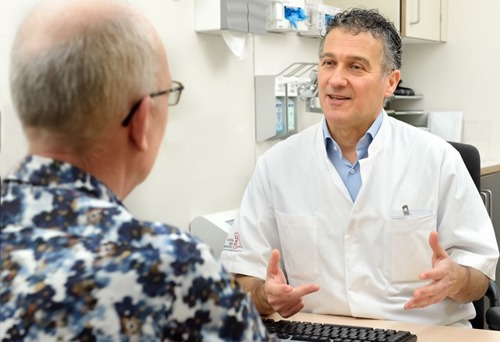Physical examination
What is a physical examination?
After your intake consultation, your physician will want to examine you to get a general impression of your health, or to map out your tumor or abnormality. Your physician will inspect your body through inspection (looking at the body), palpation (feeling the body), percussion (tapping the body), and auscultation (listening to the body). This can reveal abnormalities in the lungs, liver, nervous system, or elsewhere.
A physical examination is an external examination. If your symptoms require, your physician may also inspect the inside of your body through the mouth, nose, or anus. Most examinations do not require instruments other than a stethoscope, throat spatula, or optical instruments. A physical examination is the first step towards your diagnosis. In order to establish a cancer diagnosis, and to find out more about the tumor type, stage, and location, you will need to undergo additional diagnostic tests.
Duration
15 minutes
After the procedure
If no abnormalities were found, you can go home after the procedure.
Results
Your practicing physician will discuss the results with you.

 nl
nl